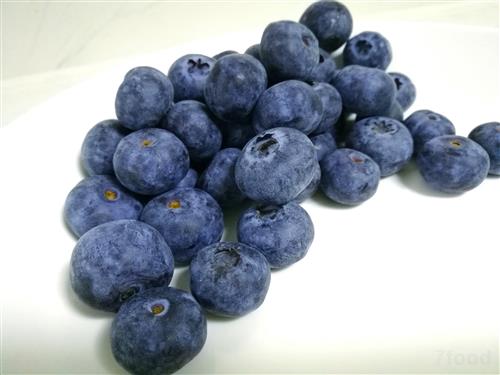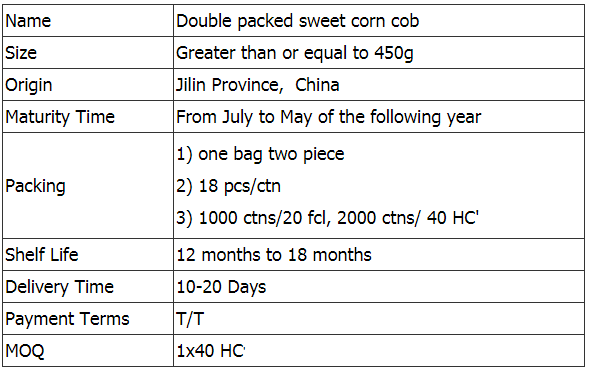Experts interviewed: Dr. Fengfeng Feng, Researcher of Nutrition and Health Institute, Chinese Center for Disease Control and Prevention Fan Zhihong, Associate Professor, College of Food Science and Nutritional Engineering, China Agricultural University The accelerated pace of life and the unbalanced daily diet have made vitamin supplements a health companion for many people. Some people think that vitamin supplements can guarantee the intake of nutrients, but others have argued that over-reliance on vitamins will not only waste money but also damage the body. The argument between the two arguments continues to this day. Over 80% of people have insufficient vitamin intake In many countries in Europe and America, it is customary to use multivitamins every day. According to data released recently by the British "Daily Mail", the domestic sales of vitamins and minerals exceeded painkillers for the first time, and total sales rose by 1.8% compared to last year. In contrast, there are also a few people who supplement vitamin tablets in China. "Life Times" has conducted an online survey with Sina Weibo and found that more than 70% of respondents would add "additional vitamins in addition to the normal diet," but 70% of them are not supplemented under the guidance of nutritionists, but “I feel that I'm missing, I'll make it up,†or “be affected by advertising,†and “come along with everyone.†Vitamin tablets "beautiful" behind, reflecting the country's two major problems in vitamin intake. First of all, the lack of vitamin intake, the body's immune system decreased. Fan Zhihong, associate professor of the College of Food Science and Nutritional Engineering at China Agricultural University, points out that residents in China are mainly deficient in vitamins B1 and B2 and vitamins A and D. According to the “Evaluation of Nutrient Intake Status of Chinese Adult Residents†published by the Chinese Center for Disease Control and Prevention, the proportion of insufficient intake of vitamin B1 and vitamin B2 in adults in China exceeds 80%. The report on the status of nutrition and chronic diseases of Chinese residents (2015) also shows that some people still lack vitamin A and vitamin D. Second, vitamin intake is inappropriate, giving up a balanced diet. According to Yan Fengying, a researcher at the China Center for Disease Control and Prevention's Institute of Nutrition and Health, most people add vitamins when they end up, preferring vitamin tablets and giving up their daily dietary nutrient intake. At the same time, it did not follow the principle of “what is it lacking?â€, but instead followed suit, resulting in excess vitamins and increasing the risk of poisoning. She stressed that, in general, we can balance the diet to meet the needs of various nutrients and do not need additional vitamin supplement tablets. Many causes of vitamin deficiency Whether it is the lack of vitamins, or inappropriate ways of ingestion, Yan Fengying pointed out that its roots lie in the imbalance of dietary structure and that the following four aspects must be resolved to achieve balanced nutrition. Lack of nutritional knowledge. Compared with other countries in the world, China has a variety of foods, so both urban and rural areas can meet the basic needs of a balanced diet. However, many people still stay on the level of “what they eat when they want to eatâ€, “how much they want to eat when they want to eat†and “have a high standard of livingâ€. As a result, erroneous dietary cognition and habits, such as overeating, large fish, and excessive intake of polished rice, have led to inadequate intake of cereals, fruits, and vegetables by the Chinese people, resulting in lack of vitamin intake. The local dietary habits are deeply ingrained. Our country has a vast territory and many ethnic groups. There are differences in climate, production, and customs. After thousands of years of accumulating, they have formed their own unique food culture. However, there are some dietary habits that are unfavorable to health and need to be improved, such as too heavy a taste and eating bacon in some areas. Foreign high-calorie diets are popular. French Western food, American burgers, spaghetti... Foreign food culture is often a fashionable, romantic endorsement. In fact, foreign food culture also has its own drawbacks. For example, the U.S. diet favors meat and eats less fruits and vegetables. Blindly sought after, it will also lead to an imbalance in nutritional intake, lack of vitamins. Advertising campaigns poison children. Influenced by advertisements such as television and radio, many children have loved sweet drinks and loved fried food since childhood. They did not like healthy foods such as green vegetables, fruits, and milk, and even formed bad habits of partial eclipses and picky eaters. When you grow up, it is difficult to change your eating habits, so that the lack of vitamins throughout their lives. Vitamin supplements are the healthiest Filling up with enough vitamins, the emphasis is on a balanced diet, while eating thick and light tea, eating more fruits and vegetables, and making up enough dairy products. Fan Zhihong also reminded that the following five vitamins most often lacked are balanced through dietary regulation. Grains supplement vitamin B1. When vitamin B1 is lacking, it can make people feel emotionally depressed, and when serious, it can increase the risk of heart attack. Eat rice milled white flour after grinding, refining, washing and other processing, it is easy to lack of vitamin B1. It is recommended that at least 50 grams of coarse grains (purple rice, brown rice, black rice, oats, buckwheat, red beans, mung beans, and millet, etc.) be eaten at least every day. "Half of cereals, half fine white" is best. Vegetable milk supplements vitamin B2. The lack of vitamin B2 can cause swelling and inflammation in the mucous membranes of the lips, mouth, eyes, and tongue. In addition to supplementing dairy products, egg yolks, cereals, and beef, it is recommended that “half a catty of fruit, a jin of vegetablesâ€, especially dark green leafy vegetables, such as spinach and canola, have higher vitamin B2 content than light-colored vegetables. Egg milk, animal visceral complement D. Vitamin D insufficiency can lead to calcium deficiency. The supply of vitamin D to one egg yolk and one cup of whole milk is far from enough. The animal's liver and kidneys are rich in vitamin D, but most people rarely eat because of concerns about cholesterol, and deep-sea fish such as tuna. Vitamin D content is also a lot, but the country's consumption is also low. Therefore, exposing the arm and drying the sun for 20 minutes every day is a good way for the elderly to supplement vitamin D, but it should not be exposed for too long. Yellow fruits and vegetables vitamin A. Vitamin A deficiency is easy to dry skin, dry eye and so on. It is recommended that you eat a moderate amount of liver such as pig liver and chicken liver as well as yellow carrots, squash, papaya, and citrus fruits rich in carotenoids, and dark green leafy vegetables have some carotene. Young children can also eat a small amount of animal livers, in which the utilization of vitamin A is higher than that of fruits and vegetables. Elderly pregnant women make up folic acid. The lack of folic acid in pregnant women may cause malformations in infants; deficiency of folic acid in middle-aged and elderly people may increase the risk of stroke, heart disease, breast cancer and senile dementia. It is recommended to ingest a large amount of green leafy vegetables. The greener the leaves, the better, such as the small rapeseed, the vegetable heart, etc., and eat without excessive risk. Women should pay attention to supplement folic acid during pregnancy, and folic acid will reach a stable level within a few weeks, and the fetus begins to develop neural tube in the third week of pregnancy. Yan Fengying added that the following three categories of people cannot obtain enough vitamins from their daily diet. They can take appropriate vitamin supplements at the advice of nutritionists. First, people who are poorly digested and absorbed, such as elderly people aged 60 or over, stomach Patients with intestinal diseases and special disease groups; second, people with large amounts of vitamins, such as pregnant women and infants and young children; third, those who have irregular diets for a long time and cannot guarantee three meals a day. (Source: Life Times) Ready-to-eat Double Packed Sweet Corn
In this category is sweet corn from Jilin Province Agricultural Sister-in-law Food Co.
The physical characteristics of maize consist of grain colour, grain shape, seed coat lustre, grain length, grain width, 100 grain weight, grain diameter, uniformity of the seed and hardness. In most cases, the colour of the endosperm of mature maize kernels is yellow or white, while the seed coat and paste layer are colourless and transparent. Depending on the colour of the kernels, there are three types of maize: yellow, white and mixed. Depending on the kernel form, hardness and different uses, maize is divided into two types: common maize (hard, intermediate, horse-tooth, hard-horse, horse-hard) and special maize (high-lysine maize, high-oil maize, sweet maize, cracked maize, glutinous maize).
The sweet corn of Jilin Province Agricultural Sister-in-law Food Co., Ltd. belongs to the special corn category of yellow corn.
Also known as fruit corn. The leaves on the outside are light green (only the ears are in the pack, we have removed the leaves for you) and the kernels inside are white or yellow. Sweeter than regular sweet corn, but lower in starch and rich in vitamin E and fibre, which is anti-ageing and aids digestion. Perfect for eating raw, mixed with vegetables in salads; it can also be steamed, but don't cook it for too long, about 5 minutes.
If you have any questions, please contact us directly. If you have any questions, please email us directly.
Delectable Sweet Corn Cob,Microwave Sweet Corn Cob,Country Sweet Corn,Ready To Eat Sweet Corn Jilin Province Argricultural Sister-in-law Food Co., Ltd. , https://www.nongsaocorns.com


